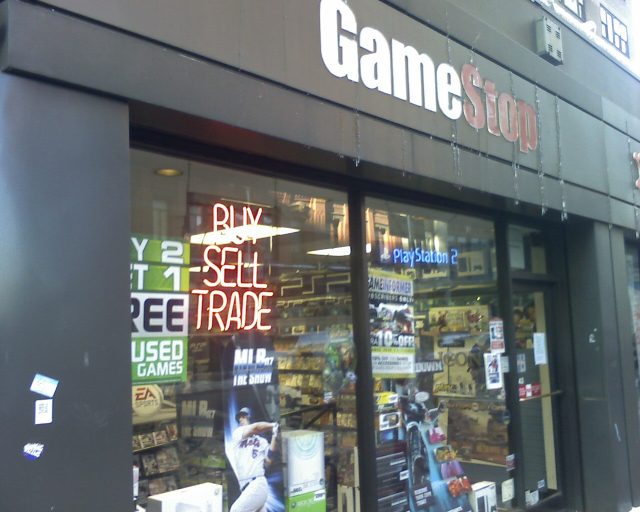
While many consoles used to come bundled with physical copies of games, these days console makers are more likely to include a card with a download code for that free pack-in title. That's no longer the case at over 5,000 GameStop retail stores worldwide, though, where those digital codes are being replaced with physical disc versions of the same game.
The new policy went into effect last month, when GameStop "worked with Sony, Microsoft, and EA" to offer a free Madden disc with console purchases rather than offering the official bundles packed with a download code. GameStop's bundle was also missing a free 12-month subscription to the EA Access program, which offers a selection of legacy titles as free downloads.
GameStop COO Tony Bartel highlighted the move to physical pack-in games in a recent earnings call and stressed that this isn't a one-time experiment. "We expect that if a game is provided as a promotional item in a hardware bundle, GameStop will see more of these physical offers than digital pack-ins on upcoming third-party releases."
Bartel went on to say that "if in fact... the platform holders do continue to put in free games as promotional items, we anticipate that at GameStop you will see more physical bundles from third parties as opposed to digital bundles." That suggests that even included first-party download codes, like Sony's The Last of Us bundle or Microsoft's Halo: Master Chief Collection pack-in, could be replaced with physical third-party games at GameStop stores in the future.
Why is GameStop insisting that consumers take their bundled games on a silicon disc? GameStop CEO Paul Raines spun this in the earnings call as a move that "consumers have a pretty strong preference in... Consumers prefer those physical bundles, because they know that that disc has value in the trade-in program at GameStop."
But Bartel gave away what's likely the real reason elsewhere in the call. "Obviously, GameStop's preference is, we sell things at full price and provide great value through our trade program and that we have physical discs," he said.
Ah yes, the trade program. The one that makes up a third of GameStop's revenue and 45 percent of its gross profits. The one that currently offers $30 of trade-in-credit for Madden 16 and then resells the used game at a 90 percent markup to players eager to save just $3 off the new disc price. The one that many publishers and developers blame for hurting their bottom line. The one that's completely obsolete if players buy digital copies of games rather than physical discs.
That trade program.
It's true, many gamers do prefer the permanence and resale value of a physical disc to the relative convenience of a digital download. The kind of consumers that shop at GameStop are, if anything, probably a bit more likely to want to resell that bundled game if and when they tire of it.
But from a corporate standpoint, this looks like a desperate attempt to hold back the inevitable transition to a world where most—if not all—games are sold as direct downloads, cutting out retailers like GameStop entirely. Major publishers like EA already make a majority of their revenue from purely digital sources, even though DLC and mobile titles skew the console side of that equation a bit. Still, most PC players have already acclimated to a world where they rarely if ever buy games on disc. Now that every new console game is available as a download and a retail disc on the same day, living room gamers are largely making the same transition.Swapping digital pack-ins for discs isn't going to make much of a dent in this problem for GameStop. If a consumer wants to go the digital route, that pack-in game may be the only physical disc they ever own for their new system. For gamers that want to continue fighting the good fight for games that they can hold in their hands, though, don't worry... GameStop has your back.
reader comments
115